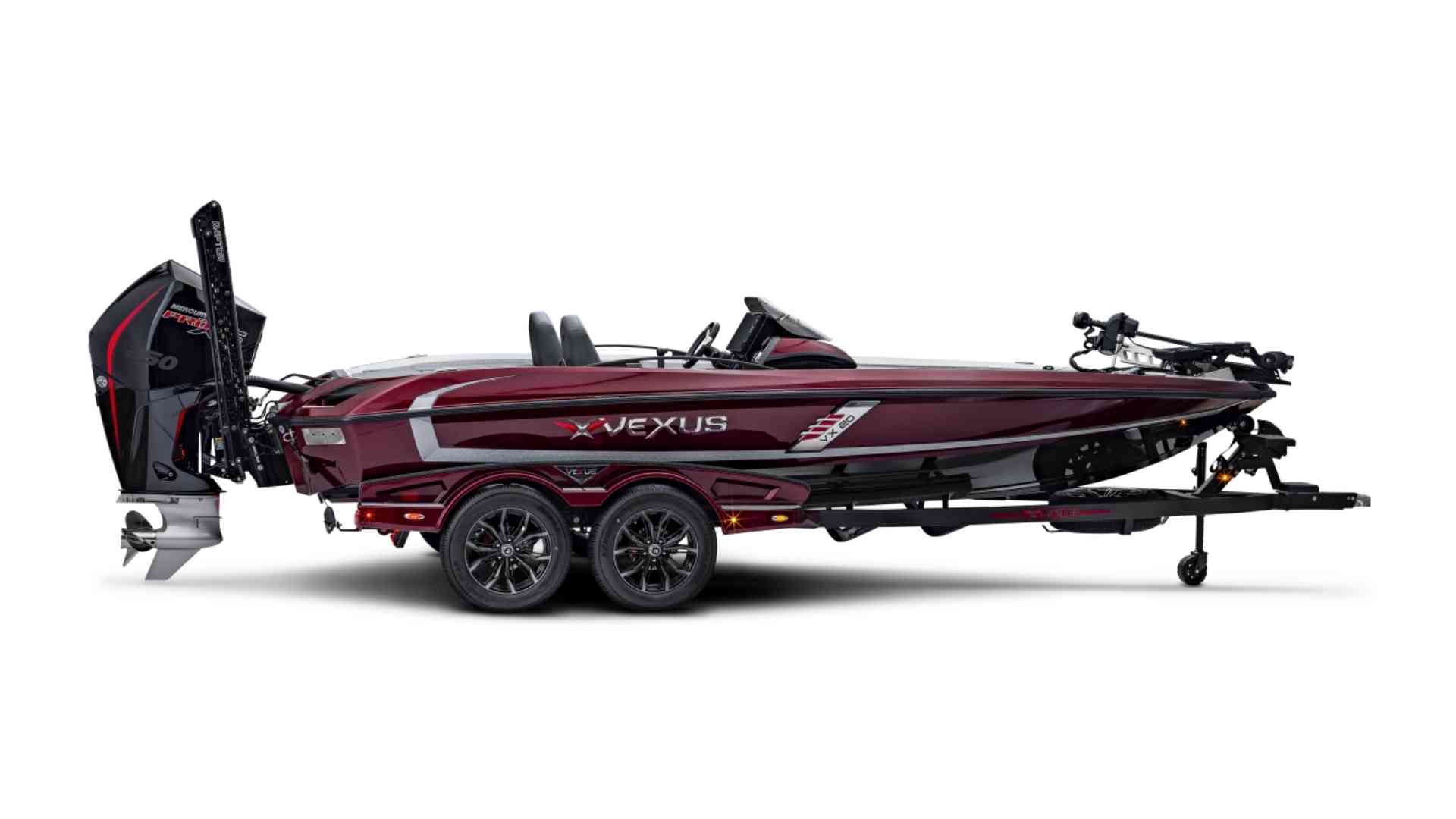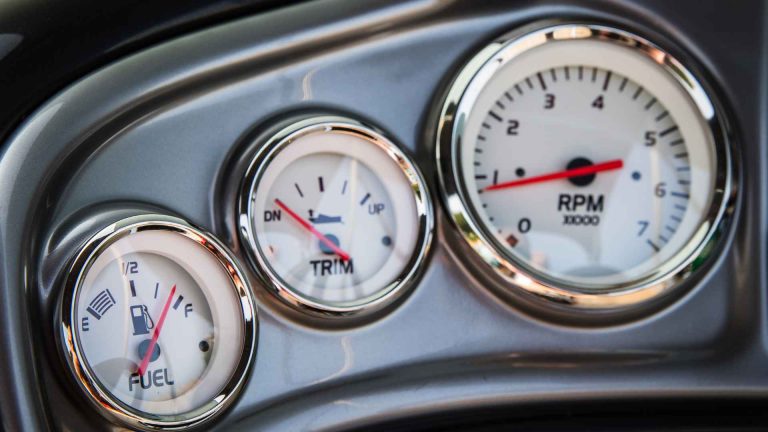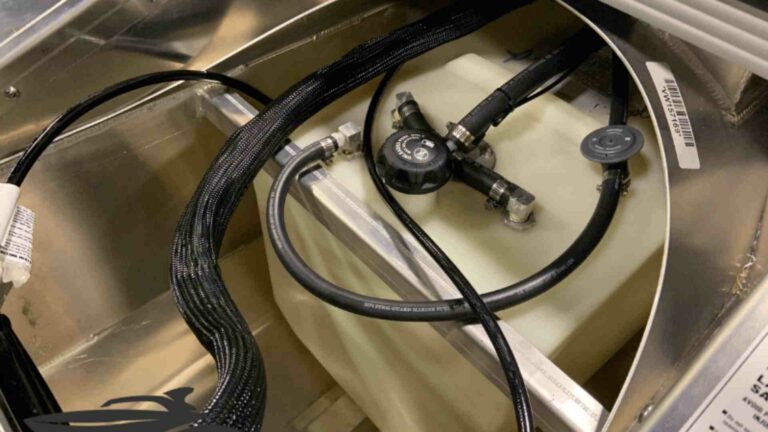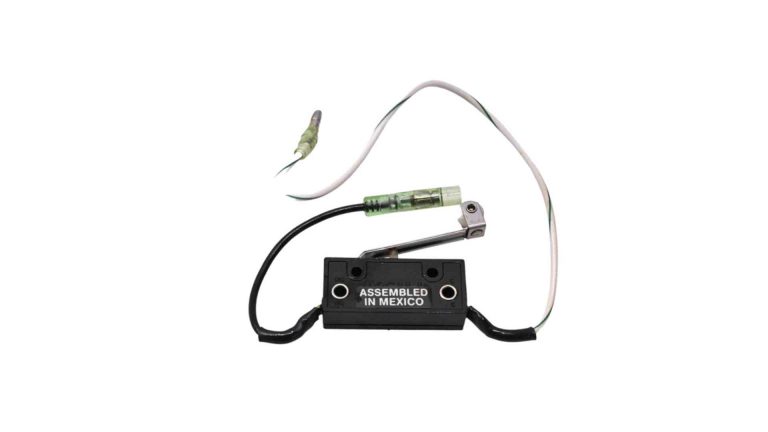8 Common Problems with Vexus Boats
Vexus boats have swiftly ascended the ranks in the boating world, captivating enthusiasts with their innovative designs and superior performance. Their popularity is undeniable, as more and more boaters opt for the Vexus experience. Yet, like any vessel that ventures into the open waters, Vexus boats are not impervious to the occasional challenges that come with boat ownership.
In this comprehensive guide, we will delve into the world of Vexus boats, exploring their rise to prominence and their unique appeal within the boating community. However, we won’t shy away from the practical realities. We will uncover the common problems that Vexus boat owners might encounter, from engine quirks to electrical conundrums, and provide not only solutions but also preventative measures to ensure a seamless voyage.
So, whether you’re a seasoned Vexus boat owner or considering joining the growing community of enthusiasts, this guide will equip you with the knowledge and know-how to navigate your Vexus boat journey confidently.
Introduction to Vexus Boats
Vexus boats have emerged as a standout name in the world of recreational boating, captivating the attention and admiration of watercraft enthusiasts. Renowned for their exceptional craftsmanship, cutting-edge technology, and unwavering commitment to quality, Vexus boats have carved a distinct niche in the boating market.
What sets Vexus apart from the rest? This article will unravel the unique qualities that make Vexus boats so highly sought after. From their innovative designs and meticulous construction to their unparalleled performance on the water, Vexus boats are engineered to exceed expectations and offer a thrilling boating experience.
In this guide, we delve into not only the allure of Vexus boats but also the practical aspects of boat ownership. We will address common problems that Vexus boat owners may encounter and provide valuable insights and solutions. Whether you are a proud owner of a Vexus boat or considering becoming one, this article equips you with the knowledge to navigate your boating adventures with confidence.
Common Problems That Vexus Boat Owners May Face
Owning a Vexus boat is a thrilling experience, but like any vessel, it may occasionally encounter some common problems. Being prepared to diagnose and address these issues can ensure a smoother and more enjoyable boating journey. Here are some common problems that Vexus boat owners might face and practical solutions for each:
Engine Issues:
- Problem: Engine stalling or running rough.
- Solution: Check for clogged fuel filters or dirty spark plugs. Regularly service the engine and use high-quality fuel.
Electrical Problems:
- Problem: Electrical systems not functioning correctly.
- Solution: Inspect wiring for loose connections or corrosion. Ensure the battery is charged and in good condition.
Propeller Damage:
- Problem: Damage to the propeller affecting boat performance.
- Solution: Inspect the propeller regularly for dings or bends. Replace or repair damaged propellers promptly.
Hull Damage:
- Problem: Cracks or leaks in the hull.
- Solution: Inspect the hull for damage, especially after impact. Repair any cracks or leaks promptly to prevent further damage.
Trailer Issues:
- Problem: Trailer malfunctions or difficulty in launching or loading the boat.
- Solution: Regularly inspect the trailer for wear, lubricate moving parts, and ensure proper tire pressure.
Battery Problems:
- Problem: Dead or weak batteries.
- Solution: Maintain and charge batteries as recommended by the manufacturer. Keep spare batteries on board.
Safety Equipment Malfunctions:
- Problem: Safety equipment like bilge pumps or navigation lights not working.
- Solution: Regularly test and maintain safety equipment. Replace any faulty components.
Fuel System Issues:
- Problem: Fuel system problems leading to poor performance.
- Solution: Ensure you use clean, quality fuel, and regularly inspect fuel lines and filters for clogs.
Remember that proper and regular maintenance can prevent many common issues with Vexus boats. Following the manufacturer’s maintenance recommendations and conducting thorough pre-launch checks can help ensure a trouble-free boating experience.
Routine Maintenance in Preventing Common Problems in Vexus Boats
Preventative maintenance is key to ensuring your Vexus boat performs at its best and stays trouble-free. Here’s a checklist of essential maintenance tasks that Vexus boat owners should perform regularly:
Weekly/Before Every Trip:
- Check Fluid Levels: Ensure your boat’s oil, coolant, and hydraulic fluid levels are at the recommended levels.
- Inspect Propeller: Look for damage or debris that might affect propeller performance.
- Clean Bilge: Keep the bilge clean and free from oil and debris.
- Test Electrical Systems: Ensure navigation lights, bilge pumps, and all electrical systems are functioning correctly.
- Inspect Safety Equipment: Check life jackets, flares, fire extinguishers, and other safety equipment for proper condition and expiration dates.
Monthly:
- Check Battery: Inspect and charge your boat’s batteries, including the trolling motor battery.
- Inspect Trailer: Look for wear on trailer tires, check wheel bearings, and ensure trailer lights are working.
Every Three Months:
- Change Engine Oil: Change the engine oil and replace the oil filter as recommended by the manufacturer.
- Check Fuel Lines: Inspect fuel lines and connections for leaks or wear.
- Inspect Wiring: Check wiring for corrosion or damage, and replace as needed.
Annually/Before Each Season:
- Full Engine Service: Schedule a professional engine service to check and maintain the engine, lower unit, and steering system.
- Hull Inspection: Inspect the hull for damage, including stress cracks or delamination. Repair promptly.
- Boat Waxing: Apply a protective wax coat to your boat’s exterior to protect it from UV rays.
Seasonal Maintenance Tips:
- Winterizing: If you store your boat in cold weather, winterize the engine, drain water systems, and properly store the boat to prevent freezing damage.
- Summer Preparation: Before the summer season, check safety equipment, clean the boat thoroughly, and ensure your trailer is in good working order.
- De-Winterizing: If stored in cold weather, properly de-winterize the boat and engine before launching in the spring.
By following this maintenance checklist and adapting it to your specific Vexus boat model and usage patterns, you can extend the life of your boat and reduce the likelihood of common problems. Always refer to your boat’s owner’s manual for manufacturer-specific maintenance recommendations.
Engine and Mechanical Problems Experienced by Vexus Boat Owners
Vexus boat owners may encounter various engine and mechanical issues while out on the water. Here, we discuss common problems and provide guidance on diagnosing and addressing them.
1. Overheating:
- Symptoms: Your boat’s engine temperature gauge indicates overheating, or you notice steam coming from the engine.
- Possible Causes: Low coolant levels, a malfunctioning thermostat, a clogged water intake, or a failing water pump.
- Solution: Shut down the engine immediately to prevent damage. Check and top up coolant levels if low. Inspect the thermostat, water intake, and water pump for issues. If uncertain, consult a marine mechanic.
2. Fuel System Issues:
- Symptoms: Engine stalling, reduced power, or difficulty starting can indicate fuel system problems.
- Possible Causes: Clogged fuel filter, water in the fuel, a malfunctioning fuel pump, or carburetor issues.
- Solution: Replace the fuel filter regularly as part of maintenance. Use clean, ethanol-free fuel, and consider using fuel additives to prevent water contamination. If problems persist, consult a marine technician.
3. Propeller Damage:
- Symptoms: Reduced speed, vibrations, or unusual noises when running the engine.
- Possible Causes: Propeller damage, such as dents, bends, or missing blades.
- Solution: Inspect the propeller regularly for damage. Minor damage can sometimes be repaired, but significant issues may require propeller replacement.
4. Engine Won’t Start:
- Symptoms: The engine fails to start, or you hear clicking sounds when turning the key.
- Possible Causes: Dead battery, corroded terminals, or a faulty starter.
- Solution: Check the battery and terminals for corrosion and clean as needed. Ensure the battery is charged. If the issue persists, have the starter tested and replaced if necessary.
5. Engine Misfires:
- Symptoms: Irregular engine firing, hesitation, or loss of power.
- Possible Causes: Spark plug fouling, ignition system problems, or fuel injection issues.
- Solution: Regularly replace spark plugs according to the manufacturer’s recommendations. Check the ignition system and fuel injection components for problems and consult a professional if needed.
Remember, adhering to the manufacturer’s recommended maintenance schedule for your Vexus boat’s engine is crucial to preventing many of these issues. Regular maintenance can help you catch problems early and keep your boat running smoothly. If you’re unsure about diagnosing or fixing a problem, consult a qualified marine mechanic for assistance.
Common Electrical Problems That Vexus Boat Owners May Encounter
Vexus boat owners may experience electrical problems from time to time. Here, we discuss common electrical issues and provide instructions on troubleshooting and addressing them while emphasizing safety precautions when working with boat electrical systems.
1. Battery Issues:
- Symptoms: Difficulty starting the engine, dimming lights, or a non-responsive electrical system.
- Possible Causes: Dead or discharged batteries, corroded terminals, or a malfunctioning alternator.
- Solution: 1.Check the battery voltage with a multimeter. 2.Clean and tighten the battery terminals, ensuring good connections. 3.Charge or replace dead or discharged batteries. 4.Test the alternator’s output using a multimeter or consult a marine technician for professional diagnosis and repair.
2. Electronics Malfunctions:
- Symptoms: Electronics like GPS, fishfinders, or radios may not power on or display errors.
- Possible Causes: Loose connections, blown fuses, or damaged components.
- Solution: 1.Inspect power connections and ensure they are secure. 2.Check and replace any blown fuses. 3.Test individual electronic components one by one to identify the faulty device and replace or repair it.
3. Wiring Faults:
- Symptoms: Intermittent or total loss of electrical functions, including lighting, pumps, or accessories.
- Possible Causes: Damaged or corroded wiring, loose connections, or short circuits.
- Solution: 1.Inspect wiring harnesses for visible damage, corrosion, or loose connections. 2.Use a multimeter to trace and identify the location of a short circuit. 3.Replace damaged wiring or connectors and secure all connections properly.
Safety Precautions:
- Disconnect Power: Before working on any electrical components, disconnect the boat’s power source by turning off all switches and disconnecting batteries.
- Use a Multimeter: Invest in a good-quality multimeter to accurately measure voltage, continuity, and resistance.
- Wear Protective Gear: When handling electrical components, wear appropriate safety gear, including gloves and safety glasses.
- Follow Manufacturer Guidelines: Always adhere to the manufacturer’s recommendations for electrical maintenance and repair.
- Seek Professional Help: If you are unsure about any electrical issue or lack the necessary experience, consult a qualified marine electrician.
Remember that electrical problems can sometimes be complex, and safety should always be a priority. When in doubt or if you’re dealing with a more complicated issue, it’s best to seek professional help to ensure the safety and reliability of your boat’s electrical system.
Potential Hull and Structural Problems That Can Occur
Vexus boat owners should be vigilant about hull and structural issues to maintain safety and integrity. Here, we describe potential problems, explain inspection methods, and emphasize prompt action to prevent further damage.
1. Gelcoat Cracks:
- Symptoms: Small surface cracks in the gelcoat layer, often seen on the boat’s exterior.
- Possible Causes: Stress, impact, or temperature-related expansion and contraction.
- Solution: 1.Inspect the cracks to ensure they are superficial and don’t extend into the hull. 2.Repair minor gelcoat cracks using a gelcoat repair kit. 3.If cracks are extensive or reach the fiberglass, consult a marine professional for assessment and repair.
2. Hull Leaks:
- Symptoms: Water entering the boat, especially in the bilge area.
- Possible Causes: Damaged hull, loose fittings, or a deteriorated seal.
- Solution: 1.Inspect the bilge area for the source of water entry. 2.Tighten loose fittings or replace damaged seals. 3.If the hull is compromised, immediately consult a marine technician for repair.
3. Impact Damage:
- Symptoms: Visible damage from collisions with objects in the water or at the dock.
- Possible Causes: Accidental impact, grounding, or contact with submerged debris.
- Solution: 1.Inspect the damaged area carefully, both above and below the waterline. 2.Document the extent of the damage and take photos for insurance purposes. 3.Seek professional evaluation and repair for any structural damage or compromised integrity.
4. Transom and Stringer Problems:
- Symptoms: Engine misalignment, excessive flexing or creaking sounds.
- Possible Causes: Rotten or weakened transom or stringers.
- Solution: 1.Check for signs of transom or stringer damage, such as soft spots, delamination, or rot. 2.Address any issues promptly, as these structural components are crucial for engine mounting and boat stability. 3.Professional repair may involve replacing damaged sections.
Safety and Structural Integrity:
- Safety is paramount; do not ignore or delay addressing hull or structural issues.
- Regularly inspect your boat’s hull, paying attention to high-stress areas and underwater components.
- Consult a marine professional for a thorough evaluation if you suspect significant structural problems.
- Adequate insurance coverage can be invaluable in the event of extensive damage or accidents.
Maintaining your Vexus boat’s structural integrity ensures both safety and longevity. Addressing issues promptly and professionally will help you enjoy worry-free boating experiences.
Warranty and Customer Support on Vexus’ Boats
Understanding Vexus’ warranty policies and accessing customer support is crucial for resolving boat problems. Here’s how to navigate these aspects effectively:
1. Vexus Warranty Policies:
- Vexus boats typically come with manufacturer warranties that cover various components. Warranty details can vary by boat model and purchase date.
- Review your boat’s warranty documentation or contact Vexus directly to understand the specific coverage and duration for your vessel.
2. Contacting Vexus for Warranty Assistance:
- In case of a problem covered by the warranty, follow these steps:
- Refer to your boat’s warranty documentation for contact information. Vexus typically provides contact details for warranty claims.
- Reach out to Vexus through the provided channels, which may include phone, email, or an online warranty claim submission system.
- Describe the issue in detail, providing photographs if requested.
- Vexus’ customer support team will guide you through the warranty claim process, including assessment and repair.
3. Documenting and Reporting Issues:
- To ensure the smooth processing of warranty claims:
- Document issues promptly when they arise. Take clear photos and notes about the problem.
- Keep all maintenance and service records to demonstrate proper care and adherence to maintenance schedules.
- Report issues to Vexus as soon as possible, even if they seem minor. Timely reporting can prevent problems from worsening and may be crucial for warranty coverage.
4. Regular Maintenance and Warranty:
- It’s essential to follow Vexus’ recommended maintenance guidelines to keep your warranty valid.
- Neglecting maintenance may void your warranty, so ensure you adhere to routine care schedules.
5. After-Warranty Service:
- Even after your warranty expires, Vexus’ customer support can still assist with repairs and maintenance. Contact them for guidance and referrals to authorized service centers.
6. Registering Your Warranty:
- If you haven’t already, consider registering your boat’s warranty with Vexus. This step ensures that you’re informed about any warranty-related updates or recalls.
Vexus’ warranty and customer support are designed to assist boat owners with various issues they may encounter. Being proactive in documenting and reporting problems, as well as adhering to maintenance recommendations, will help you make the most of your Vexus boat ownership experience.
Tips for Smooth Sailing for Vexus boat owner

Owning a Vexus boat can be an exciting and fulfilling experience. To ensure smooth sailing and maintain your boat’s value, consider these tips and best practices:
- Regular Maintenance: Follow Vexus’ recommended maintenance schedules diligently. Regular upkeep is key to preventing issues and preserving your boat’s value.
- Proper Cleaning: Clean your boat after each outing to remove saltwater, dirt, and debris. Use marine-grade cleaning products to protect your boat’s finish.
- Check Electrical Systems: Routinely inspect electrical components, such as batteries, wiring, and electronics. Ensure connections are secure to prevent electrical problems.
- Engine Care: Stick to the manufacturer’s maintenance schedule for your boat’s engine. Change oil, filters, and spark plugs as recommended.
- Hull and Gelcoat Maintenance: Regularly inspect the hull for damage, cracks, or chips. Address any issues promptly to prevent structural problems.
- Protect Against Corrosion: If you boat in saltwater, take extra precautions to prevent corrosion. Rinse your boat with freshwater after saltwater use and consider anti-corrosion treatments.
- Trailer Maintenance: If you use a trailer, maintain it properly. Check tires, brakes, and lights before every trip. Ensure the boat is properly secured during transportation.
- Safety First: Prioritize safety by keeping life jackets, fire extinguishers, and emergency equipment onboard and in good condition. Familiarize yourself with safety protocols.
- Join Vexus Communities: Connect with other Vexus boat owners by joining Vexus boating communities or forums. Share experiences, ask for advice, and learn from fellow enthusiasts.
- Document Upgrades and Repairs: Keep records of any upgrades, repairs, or maintenance you perform. This documentation can be valuable when selling your boat.
- Store Properly: When not in use, store your boat in a secure, dry place, ideally indoors. Proper storage protects it from the elements and prolongs its lifespan.
- High Resale Potential: If you plan to sell your boat in the future, maintain it well. Boats with a documented maintenance history often command higher resale prices.
- Regular Inspection: Before each outing, conduct a thorough inspection of your boat to catch any issues before they become major problems.
By following these tips, you can ensure a smooth and enjoyable experience with your Vexus boat. Proper maintenance and care will not only enhance your boating adventures but also help retain your boat’s value over time.
Watch What’s wrong with my Vexus boat? | Video
What Should I Do If I Encounter Engine Problems on My Vexus Boat?
If you experience engine issues, start by checking the basics like fuel levels, filters, and spark plugs. If problems persist, consult your boat’s owner’s manual for troubleshooting tips. If the issue persists, contact a certified marine mechanic or Vexus customer support for professional assistance.
How Can I Prevent Electrical Problems on My Vexus Boat?
Regularly inspect your boat’s electrical components, including batteries, wiring, and electronics. Ensure all connections are secure and free of corrosion. Keep electrical systems dry and clean to prevent issues.
What Should I Do If I Notice Damage to the Hull or Structural Issues?
Address hull or structural damage promptly. Small cracks or chips can lead to more significant problems if left untreated. Consult a professional boat repair service or Vexus customer support for guidance on repair or replacement options.
Are There Any Common Trailer-Related Problems to Look Out For?
Common trailer-related issues include tire wear, brake malfunctions, and trailer lights not working. Before each trip, inspect the trailer for these problems. Regular maintenance and proper loading of the boat onto the trailer can prevent many trailer-related issues.
How Can I Ensure I’m Following Vexus’ Recommended Maintenance Schedule?
Vexus provides maintenance guidelines in your boat’s owner’s manual. Keep a maintenance log to record tasks, dates, and any notes about your boat’s upkeep. Set reminders for routine maintenance tasks to ensure you don’t miss important deadlines. Following the recommended maintenance schedule is crucial for preventing problems and maintaining your boat’s warranty.
Conclusion

In conclusion, Vexus boats have earned their reputation as high-quality vessels in the boating world, but like any boat, they can encounter common issues. This comprehensive guide has provided Vexus boat owners with valuable insights into recognizing, addressing, and preventing these problems.
We’ve highlighted the importance of proactive maintenance as a key factor in preventing common issues, stressing the significance of regular check-ups and adherence to recommended maintenance schedules. Whether it’s engine troubles, electrical glitches, or structural concerns, we’ve offered practical solutions and troubleshooting tips to keep your Vexus boat in top condition.
Remember that Vexus’ warranty and customer support are there to assist you when issues arise, so don’t hesitate to reach out. Furthermore, we’ve shared additional tips and best practices for enhancing your boating experience, maintaining your boat’s value, and connecting with fellow Vexus boat enthusiasts.
In the end, owning and navigating a Vexus boat is about experiencing the joy of being on the water, and with the knowledge gained from this guide, you can confidently tackle any challenges that come your way, ensuring that your boating adventures remain enjoyable and trouble-free.
Share 8 Common Problems with Vexus Boats with your friends and Leave a comment below with your thoughts.
Read What Size Are Boat Drain Plugs? until we meet in the next article.






